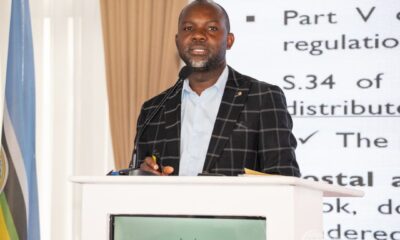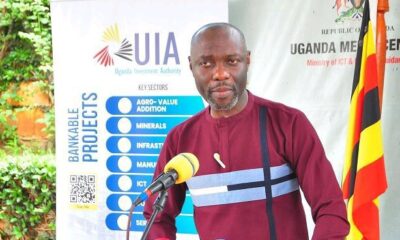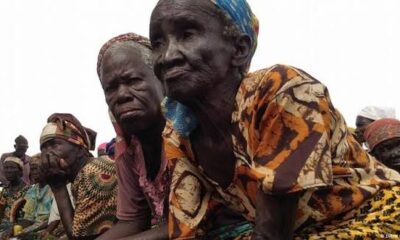Politics
“When I Become President Of Uganda, I Will Give Every Graduate 1 Million As Startup Capital” FDC’s Nandala Mafabi Makes Bold Promise

In a bold bid to tackle Uganda’s escalating youth unemployment crisis, Forum for Democratic Change (FDC) presidential flagbearer Nathan Nandala Mafabi has pledged to give every graduate one million shillings in start-up capital if elected in 2026. The promise, unveiled alongside his candidacy on August 13, aims to spark entrepreneurship and reduce reliance on scarce formal jobs.

Mafabi framed the plan as an urgent response to what he calls the ruling National Resistance Movement’s (NRM) “failure to address the root causes of unemployment.” According to the 2024 Census, 51% of Ugandans aged 18–30 are neither employed nor in education or training. Each year, roughly 700,000 young people enter the job market, yet job creation continues to lag far behind demand.
The problem is especially acute in rural and economically disadvantaged regions such as Bukedi, Lango, Busoga, and Karamoja, where up to 60% of youth are idle—compared to 39% in more prosperous areas like Kigezi and Ankole. The crisis also has a gendered dimension: unemployment among young women stands at 18.7%, higher than the 13.4% recorded for young men.

Mafabi’s proposal is designed to encourage self-employment by giving graduates seed capital to launch small businesses. While acknowledging that one million shillings is modest, he insists it can be a catalyst for innovation and independence, especially when paired with other elements of the FDC’s five-pillar manifesto—such as agricultural modernization, strategic investments, and targeted job creation programs.
Critics have questioned the feasibility of the plan, citing budgetary constraints and the rising cost of living. Supporters, however, see the pledge as a practical first step and a symbolic break from what they view as decades of ineffective policies. For many young Ugandans, the promise speaks to a deep desire for opportunity in a system that often leaves them behind.
Mafabi argues that the initiative could help bridge Uganda’s stark regional and socio-economic divides. By equipping graduates with resources to pursue their own ventures, he hopes to reduce dependency on government jobs and foster a culture of entrepreneurship.

As Uganda heads toward the 2026 elections, the promise is likely to become a flashpoint in the national debate. For some, it signals a fresh, youth-centered vision for economic transformation; for others, it raises hard questions about funding, oversight, and long-term impact.
Whether the pledge becomes a defining policy or a campaign talking point, it has already shifted the conversation. In a country where over half of young people are sidelined from both work and education, even a modest injection of capital could be the spark that turns frustration into opportunity.




















